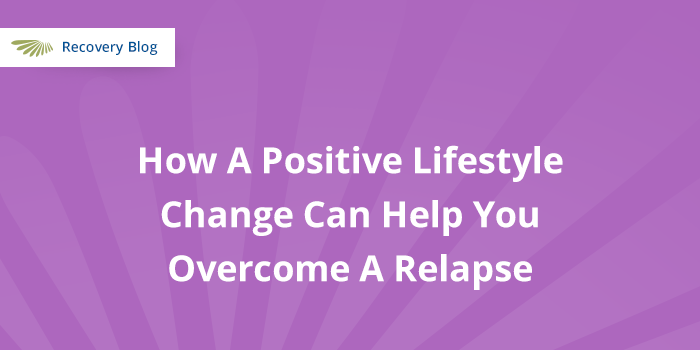Moving On From a Recovery Home
Making the decision to move on from a recovery home is not one to be taken lightly, and certainly...
3 min read
By: Russ Kallina on Jan 15, 2018

Relapses and slips are part of recovery, and not necessarily a sign that what you’re trying to do is not working. Still, the question of what to do after a relapse is one that many people don’t know how to answer.
Knowing how to overcome a relapse can give you the tools and the confidence to continue your road to recovery and decrease the likelihood that you will relapse again.
When you have a relapse it’s vital that you understand this isn’t the end of recovery, but rather a natural part of the process. For many people, what helps most is creating positive lifestyle changes and establishing new habits that set them up to help overcome relapses.
Inaction can leave you feeling powerless. The easiest way to regain control of what is happening in your life is to identify the negative parts that you control and address them. Here are some areas you can focus on when trying to enforce positive lifestyle changes during your recovery (or even if you’re not in recovery!).

One of the key things we recognize with those who suffer from substance use disorder is that the disorder isn’t just a physical addiction.
The real issues driving relapse often take root in underlying unresolved issues, trauma, emotional, and mental health. At least sixty percent of people who struggle with substance use disorders are also experiencing one co-occurring disorder.
This makes self-reflection on your emotional and mental states vital when overcoming a relapse. Consider your anger, stress, depression, and anxiety levels. Also keep in mind that seemingly small things like diet, nutrition, and exercise can all contribute to your overall mental well being. Acknowledging that there’s a problem with your lifestyle can be a large step towards overcoming a relapse.
In particular, stress management is especially important when it comes to recovery from relapse. Stress can play a leading role in the development of substance use disorders, and so it also plays a role in relapse. Being able to manage your stress gives you the tools to continue recovery and overcome relapse.
Regardless of what your own introspection finds, remember that low self-esteem is especially common in recovery and after relapses.
You may not know it, but your family and friends are working through your substance use disorder as well. Often, they can be deeply affected by relapses – they know how much this means to you and it means something to them too – so it’s likely they’ll be ready to help you re-piece things together.
An important step in building positive social networks and support systems after a relapse is being honest with your loved ones and family.
You’ll find once those closest to you are aware of the situation they’ll be able to encourage you, offer support, and be the firm voice you might need to continue your recovery. A positive network can really make the difference when it comes to recovery.
If you don’t currently feel like you have a strong support work with your loved ones and family members remember that communication is key to building a strong and positive support network.
Create an environment around yourself where high risk situations (emotional and physical triggers) are minimal. You know your own triggers best, and avoiding emotional or physical triggers can be key in overcoming relapse.
For some, this can mean taking themselves out of their current environment completely and exploring the possibility of residential programs as a way to provide a truly restful environment to help work on recovery.
After a relapse, all the lifestyle changes you want to make might feel overwhelming but the key is to focus on simple and small daily changes you can make that eventually add up to large positive habits that can last a lifetime.
Remember that help is available for you no matter the number of relapses you’ve experienced in the past. We can help you evaluate your best options, and offer residential programs as a method through which to regain control.
We also have a focus on dual diagnosis – treating the physical alongside the emotional strains you’re experiencing – and helping you making a successful transition to recovery.
Making the decision to move on from a recovery home is not one to be taken lightly, and certainly...
A common cause of substance use disorder relapse is stress. Given that stress can play a leading...
Breaking free from addictive behavior is not an easy undertaking. Many try repeatedly only to end...